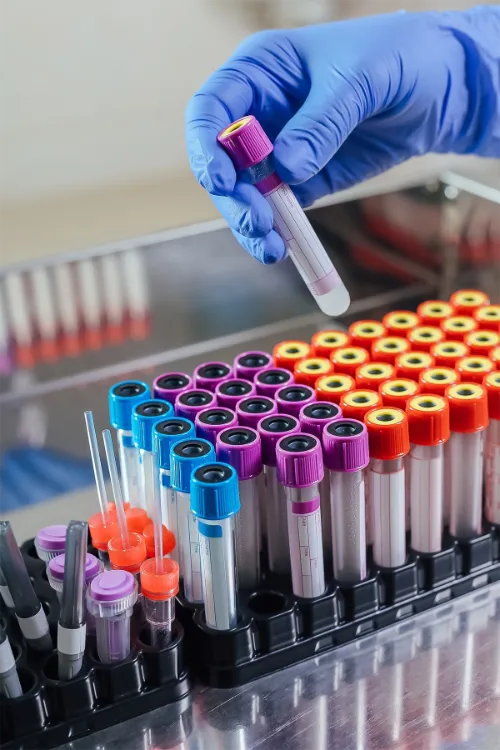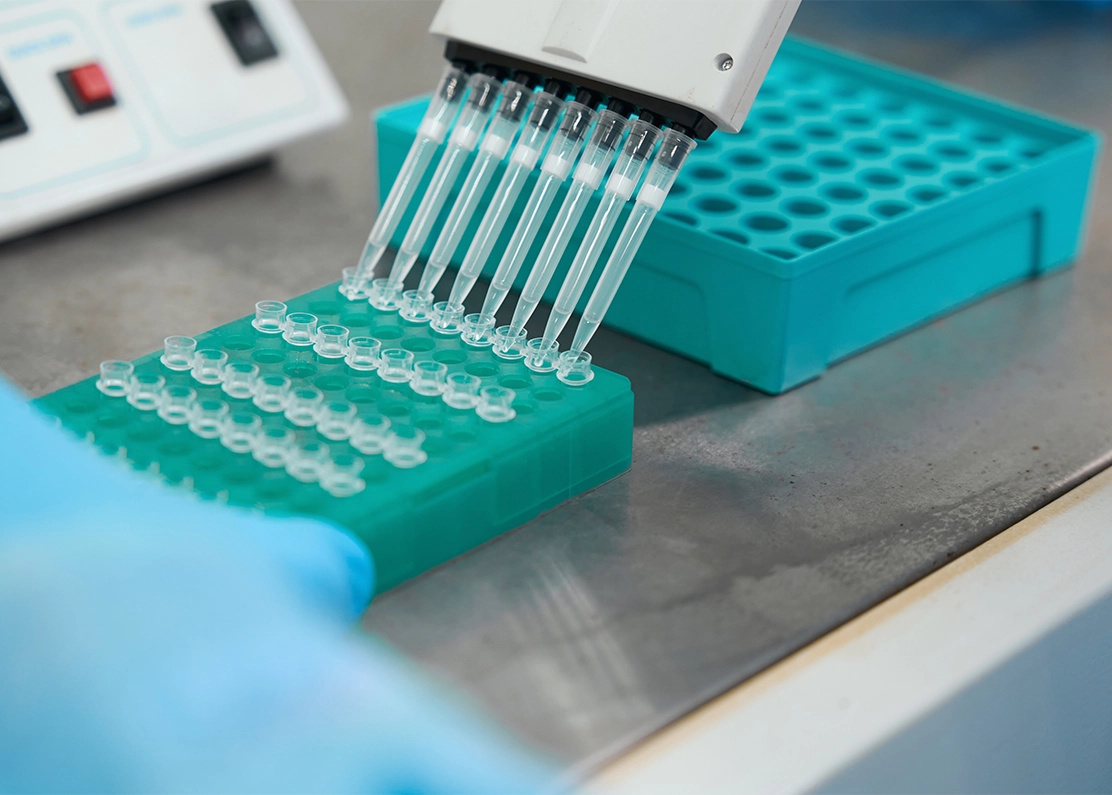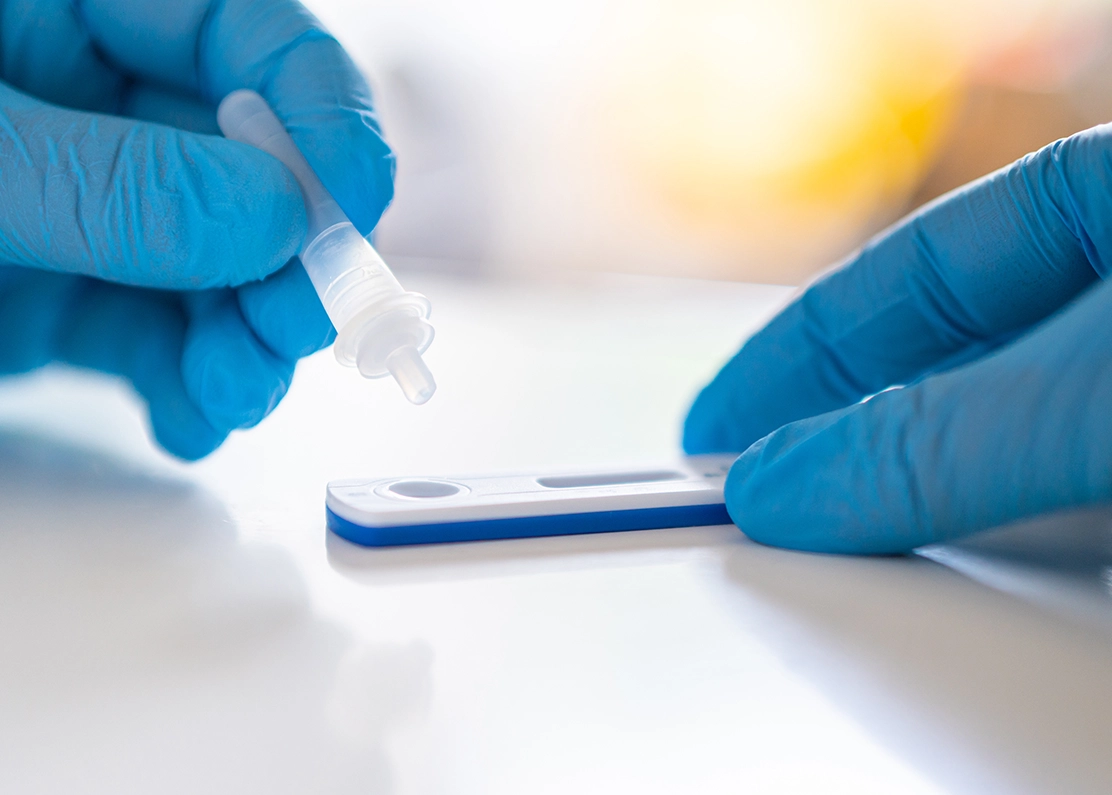Infectious Diseases
"Technological advances such as research and development of new antimicrobials have allowed, in our environment, a remarkable decrease in mortality related to the infection and a better control of it".
DR. JOSÉ LUIS DEL POZO DIRECTOR. INFECTIOUS DISEASES SERVICE

The Service of Infectious Diseases is a multidisciplinary service in which specialists in Infectious Diseases from the Department of Internal Medicine and the Department of Clinical Microbiology collaborate.
In this service we work on the prevention, diagnosis and treatment of the diseases produced by an infectious agent, which can be bacteria, virus, fungi or parasites. The infections affect the human being causing very different processes that can be located in any tissue of the human body, so they require a specific approach while integrated with other specialties.
This service carries out its activity on three fronts: care work, focused on the prevention, diagnosis and treatment of infectious diseases; teaching, with training of medical students, resident doctors and nurses; and research vocation, through the development of clinical and laboratory studies with a marked translational character.
Infectious diseases are currently one of the main causes of morbidity, both at community level and in the hospital environment, and with the increasing increase in infections caused by microorganisms resistant to antibiotics will become in the coming years one of the leading causes of death worldwide.
The development and spread of multi-resistant bacteria (MRC) is a real threat to global public health, recognized by the WHO, the United Nations and the European Union itself among many other institutions, because serious infections caused by MRC have a worse prognosis than those produced by the same bacteria when they are sensitive to antibiotics. In 2007, the European Center for Diseases Prevention and Control (ECDC) estimated at 25,000 the number of deaths per year in Europe due to BMR. More recently, it is estimated that in 2050 they will reach one million per year, surpassing cancer as the leading cause of death. In this worrying global scenario, Spain occupies the first place in the world in antibiotic consumption without any epidemiological reason that justifies it, and one of the first in Europe in infections by BMR. In 2018 the Society of Infectious Diseases and Clinical Microbiology launched the first BMR registry. Eighty-two hospitals from 15 Autonomous Communities participated. The number of hospital stays in the participating centers during the week of the study was 233,172, which represents approximately 26% of the total number of hospital stays in Spain during that period. A total of 903 patients with BMR infection were registered. The number of patients with BMR infection who died during the first month of follow-up was 177 out of 903 (19.6%).

What are the symptoms of anal cancer?
Some of the most common symptoms of vaginal candidiasis are as follows:
Intense itching or puritus
This is the predominant symptom. This discomfort is often persistent and can affect the patient's quality of life.
Vaginal burning
This symptom is particularly noticeable during urination or sexual intercourse (dyspareunia).
Sensation of dryness
Some patients describe a feeling of dryness in the vaginal mucosa, which may intensify discomfort.

Specialized units for a better attention
IN NAVARRE AND MADRID

Care areas
For a better service, we organize the activity of the Infectious Diseases Service around several care lines:
- Infections associated with biomedical devices (joint prostheses, intravascular catheters, heart valves, pacemakers,...) Specifically, we have an osteoarticular infection unit where infectious scientists, traumatologists, microbiologists, radiologists and nuclear doctors work in an integrated manner.
- Healthcare-related infections (multi-strain microorganisms to antibiotics).
- Infections in immunosuppressed and immunosuppressed patients: HIV, patients undergoing solid organ transplantation or hematopoietic precursors, patients undergoing immunomodulatory or immunosuppressive treatments,....
- Sexually transmitted infections.
- Community infection.
- Complex infection.
- Travel and tropical medicine.
- Respiratory infection area (together with Pneumology and Pharmacy).
- Adoptive immunotherapy for the treatment of viral infections.
- Prudent use program and optimization of antimicrobial treatment.

Prudent use of antibiotics
We have developed a prescription support program, coordinated by the specialists of the Infectious Diseases Service and with the participation of specialists from other areas such as the Pharmacy Service and the Clinical Microbiology Department.
This multidisciplinary work allows not only to optimize anti-infective treatments at a hospital level and therefore to improve clinical results, but also to minimize, as far as possible, adverse events of these drugs, to preserve hospital ecology by minimizing the emergence of resistant microorganisms and to guarantee cost-effective treatments; in short, to improve the quality of care of our patients.
Do you need to request a consultation with one of our specialists?
We put at your disposal the experience of our professionals and all the technology of the Clinic to focus quickly and correctly the diagnosis, offering the patient the most appropriate treatment to solve the infection.
How is vaginal candidiasis diagnosed?
Clinical diagnosis should be made by detailed examination and, if necessary, confirmed by specific tests such as vaginal culture or microscopic examination of the discharge. This makes it possible to differentiate vaginal candidiasis from other infections such as trichomoniasis or bacterial vaginosis, which may share some symptoms but require different treatments.
Our team of professionals
We have a Bacterial Biofilm Laboratory whose objective is to develop new diagnostic and therapeutic strategies.
Research
Microbial Biofilm Laboratory
One of the main lines of research of the Infectious Diseases Service is the study and treatment of infections associated with medical devices (such as joint prostheses, pacemakers or catheters).
We are looking for new molecular diagnostic and imaging techniques to achieve an early diagnosis of these infections and increase the chances of cure.
We are evaluating the efficacy of new molecules that will improve the prognosis of these infections, as well as studying new therapeutic strategies such as non-antibiotic substances or electromagnetic fields.




